Movement Rights

How has the #MeToo movement impacted women's rights globally ?
The #MeToo movement has significantly influenced women's rights globally by encouraging survivors to share their experiences and creating a culture of support. This has led to increased reporting and accountability for perpetrators, as well as heightened awareness about the prevalence and severity of sexual harassment and assault. Many countries have also implemented laws and policies in response to the movement, such as stricter penalties for perpetrators and protections for survivors. However, there are still challenges and limitations to its effectiveness, including the reluctance of some survivors to share their stories publicly and the underreporting and underprosecution of other forms of gender-based violence. Overall, the #MeToo movement has had a significant impact on advancing women's rights, but more work is needed to ensure full progress.
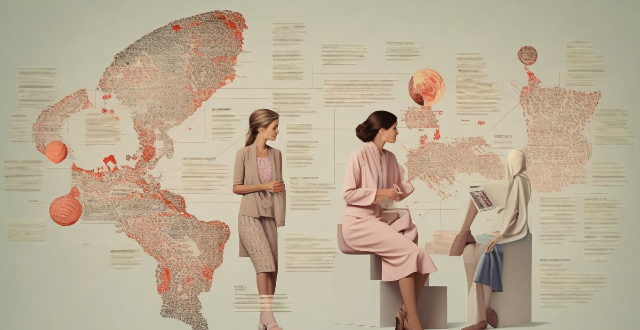
How have historical female figures influenced modern-day feminism and women's rights movements ?
This article explores how historical female figures have influenced modern-day feminism and women's rights movements. It discusses early pioneers like suffragettes and abolitionists, civil rights era figures such as Rosa Parks and Coretta Scott King, second-wave feminists including Betty Friedan and Gloria Steinem, and modern-day feminists like Malala Yousafzai and the #MeToo movement. These individuals have played crucial roles in shaping the course of feminism and women's rights movements, paving the way for future generations to fight for equality and justice.
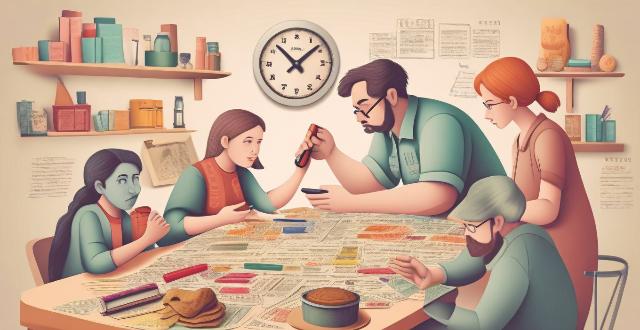
What role do international organizations play in promoting climate justice and human rights ?
International organizations play a crucial role in promoting climate justice and human rights by setting standards, offering technical assistance, facilitating dialogue, monitoring progress, and raising awareness.

What are some successful examples of legislation that have improved women's rights ?
The text discusses various successful legislations that have improved women's rights over the years. These include granting women the right to vote, prohibiting gender-based wage discrimination, protecting pregnant women in the workplace, providing funding for services for victims of domestic violence, improving women's health care access and coverage, protecting pregnant workers from dismissal or reduced pay during their pregnancy and after childbirth, and eliminating discrimination against women in all areas of life.

What is the relationship between immigration policies and human rights issues ?
Immigration policies significantly impact human rights issues by determining who is allowed to enter a country and under what conditions. Key areas of concern include protection of refugees and asylum seekers, family reunification, labor rights, and non-discrimination. Policies should ensure the safety and well-being of refugees, facilitate family reunions without undue delay, protect migrant workers from exploitation, and promote equality in access to education, healthcare, and social services. Countries must uphold these principles to ensure fair and just treatment for all individuals, regardless of their immigration status.
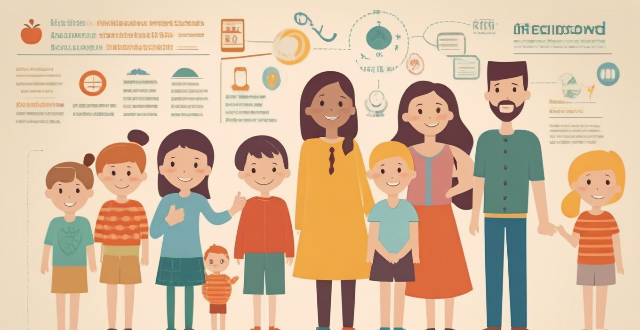
How can children be empowered to participate in climate activism while protecting their rights ?
This discussion explores strategies to empower children in climate activism while safeguarding their rights. The key strategies include education and awareness, safe participation, protection of rights, and community engagement. Education and awareness can be achieved through informative workshops and accessible information. Safe participation involves age-appropriate activities and adult supervision. Protection of rights includes respect for privacy, psychological support, and legal advocacy. Community engagement can be fostered through youth-led initiatives, networking opportunities, and family involvement. By focusing on these strategies, we can empower children to participate in climate activism while ensuring their rights are protected.

How does climate change affect the rights of marginalized communities ?
Climate change disproportionately affects marginalized communities, impacting their rights in several ways: loss of territory and habitat, degradation of natural resources, increased disease risk, limited access to healthcare, loss of livelihoods, inequality in adaptation and mitigation efforts, loss of cultural heritage, and displacement and migration. Addressing these challenges requires global action that prioritizes the needs and rights of vulnerable groups.
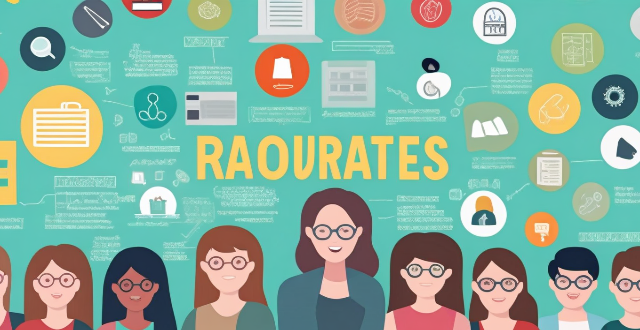
How has technology influenced women's empowerment and rights ?
The text discusses the impact of technology on women's empowerment and rights, highlighting various areas such as education, economic participation, health, social activism, and policy influence. It emphasizes how online learning platforms, e-commerce, telemedicine, social media, and digital security tools have transformed opportunities for women. Furthermore, it underscores the importance of leveraging technology to promote gender equality and women's rights globally.
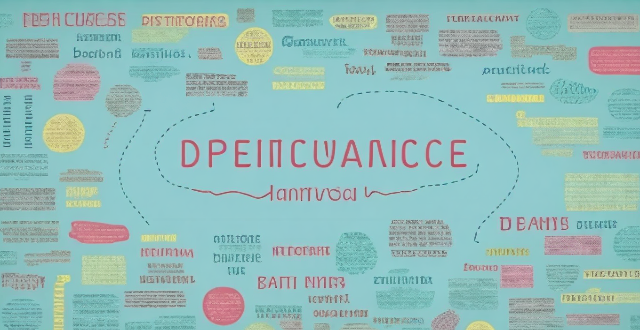
What is the definition of privacy rights ?
The text discusses the definition and importance of privacy rights, which are fundamental human rights that allow individuals to control access to their personal information and protect themselves from unreasonable interference or intrusion into their private lives. Privacy rights include the ability to choose what information about oneself is disclosed and to whom, as well as the power to determine how that information is used. The key aspects of privacy rights include control over personal information, protection from unreasonable interference or intrusion, and autonomy and self-determination. Privacy rights are essential for maintaining individual freedom and dignity, promoting trust and confidence in society, and creating a more just and equitable world where everyone has the opportunity to live their lives with dignity and autonomy.
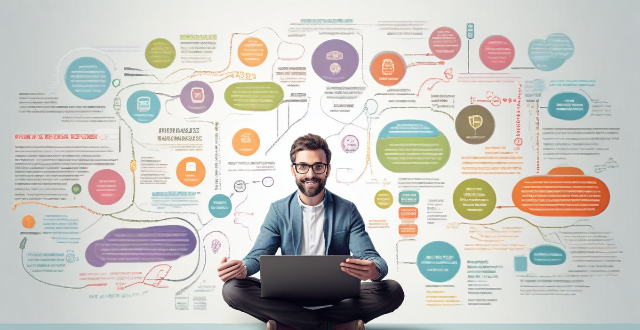
How can we ensure that climate action is consistent with human rights ?
To ensure that climate action is consistent with human rights, we need to adopt a holistic approach that takes into account the social, economic, and environmental dimensions of sustainability. Some strategies include recognizing the interdependence between climate action and human rights, integrating human rights into climate policy, ensuring transparency and accountability, promoting participatory democracy, strengthening legal frameworks, and building capacity and providing support to vulnerable populations. By doing so, we can create a more equitable and just world for all.

What are the legal frameworks for addressing climate change and human rights ?
The text discusses the various legal frameworks that exist to address climate change and human rights, including international agreements, national laws, and regional regulations. It highlights the importance of a multifaceted approach to tackle this complex issue and emphasizes the need to protect vulnerable communities' rights in the process. The text also provides examples of specific initiatives taken by different entities such as the United Nations, the United States, the European Union, the African Union, and the Association of Southeast Asian Nations. Overall, the text suggests that by working together at these different levels, we can create a more equitable and sustainable future for all.

How have recent data breaches impacted public perception of privacy rights ?
The text discusses the impact of recent data breaches on public perception of privacy rights. It highlights increased awareness of privacy risks, demands for stronger protections, loss of trust in institutions, and a shift towards privacy-focused technologies. The text emphasizes the importance of prioritizing privacy rights to ensure that personal information remains secure and protected.

How does climate change impact human rights ?
The impact of climate change on human rights is multifaceted and far-reaching. It affects health and well-being, food security, water access, displacement and migration, and indigenous rights. Extreme weather events can cause physical harm and death, while rising temperatures can lead to an increase in infectious diseases. Changes in temperature and precipitation patterns can disrupt agricultural production, leading to crop failures and food shortages. Water scarcity can occur as glaciers and snowpacks melt faster than they can be replenished. Displacement and migration can have serious consequences for safety, security, and rights. Indigenous communities are often particularly vulnerable to the impacts of climate change because they rely heavily on natural resources for their livelihoods and cultural practices.

How has the #MeToo movement influenced corporate culture and policies towards women ?
The #MeToo movement has had a profound impact on corporate culture and policies towards women. It has brought attention to the prevalence of sexual harassment and assault in the workplace, leading to increased awareness and action to address these issues. This movement has also influenced companies to adopt more inclusive and supportive policies for their female employees. One of the most significant impacts is the increased awareness and education about sexual harassment and assault in the workplace. Companies have recognized the need to educate their employees about what constitutes inappropriate behavior and how to report it. Many organizations have implemented mandatory training programs for all employees, including managers and executives, to ensure that everyone understands the company's policies and procedures regarding sexual harassment. The #MeToo movement has also led to changes in corporate culture, particularly in terms of creating a more inclusive and supportive environment for women. Companies are now placing a greater emphasis on diversity and inclusion initiatives, recognizing that a diverse workforce is not only ethical but also beneficial for business success. This includes implementing policies that promote equal pay, opportunities for advancement, and flexible work arrangements to accommodate the needs of working parents. Another key area where the #MeToo movement has influenced corporate culture is in improving reporting mechanisms for incidents of sexual harassment or assault. Companies are now taking steps to ensure that their employees feel comfortable coming forward with concerns and that they will be taken seriously. This includes establishing anonymous reporting channels, providing resources for support and counseling, and ensuring that investigations are conducted thoroughly and impartially. Many companies have adopted zero-tolerance policies towards sexual harassment and assault in response to the #MeToo movement. These policies clearly outline the consequences of engaging in such behavior, which can include termination of employment. By enforcing strict penalties for misconduct, companies aim to create a workplace culture where employees feel safe and respected. The #MeToo movement has also highlighted the importance of supporting victims of sexual harassment or assault. Companies are now offering more comprehensive resources for employees who have experienced such incidents, including access to counseling services, legal assistance, and job protection while they recover from the trauma. This support helps victims feel heard and validated, encouraging them to come forward and seek help when needed. In conclusion, the #MeToo movement has had a significant influence on corporate culture and policies towards women by increasing awareness and education about sexual harassment, promoting inclusivity and support, improving reporting mechanisms, adopting zero-tolerance policies, and providing support for victims. These changes demonstrate a commitment by companies to create a safer and more equitable workplace for all employees.

Are there any international laws or treaties related to privacy rights ?
The text discusses several international laws and treaties related to privacy rights, including the European Convention on Human Rights (ECHR), the General Data Protection Regulation (GDPR), the Charter of Fundamental Rights of the European Union (CFR), and the International Covenant on Civil and Political Rights (ICCPR). These documents provide individuals with protection against unlawful interference with their private lives, homes, and communications.

Can climate change be considered a human rights issue ?
The text discusses the impact of climate change on human rights, focusing on health and safety, access to resources, displacement and migration, and intersectionality. It argues that climate change can be considered a human rights issue because it has the potential to violate several fundamental rights enshrined in international law. The text concludes that addressing climate change is crucial for protecting and promoting human rights globally.

In what ways do governments regulate privacy rights ?
Governments regulate privacy rights through legislation, enforcement agencies, self-regulation, and public awareness campaigns. Legislation defines what constitutes personal information and sets guidelines for its collection, use, and disclosure. Enforcement agencies oversee the implementation of privacy laws and handle complaints from individuals regarding the misuse of their personal information. Self-regulation encourages industry groups to develop codes of conduct or standards that promote privacy protection. Public awareness campaigns educate citizens about their privacy rights and how to protect themselves online.

What are the responsibilities of governments in addressing climate change and protecting human rights ?
Governments worldwide have a crucial role in addressing climate change and protecting human rights. Their responsibilities include legislation, public awareness, research, international cooperation, adaptation measures, protection of human rights, alignment with Sustainable Development Goals, and monitoring progress. By taking proactive steps in these areas, governments can create a sustainable future for all citizens while respecting their fundamental rights.
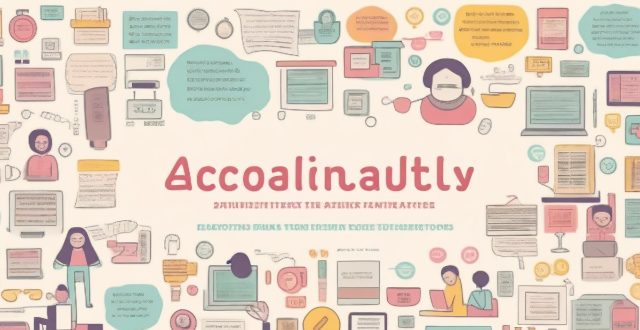
Can social media platforms be held accountable for breaches of privacy rights ?
The article discusses the accountability of social media platforms for privacy rights breaches and outlines legal frameworks, challenges, and best practices to ensure user data protection.
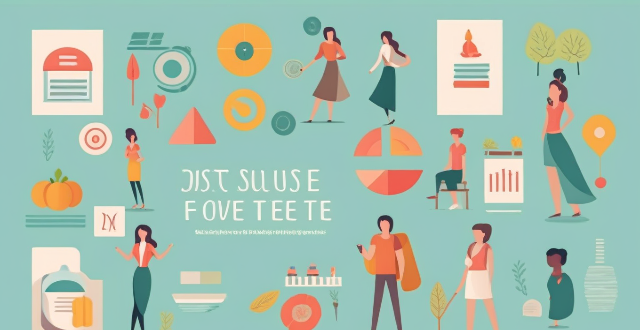
What are the legal rights of women in the workplace ?
This text discusses the legal rights of women in the workplace. It outlines five key areas: equal pay, anti-discrimination, pregnancy leave, harassment and bullying, and parental leave. The text explains that women have the right to receive equal pay for equal work, be protected from discrimination in hiring, promotion, and termination, take pregnancy and parental leave without losing their job or facing negative consequences, and work in an environment free from sexual harassment, bullying, and other forms of gender-based misconduct. The text concludes by emphasizing the importance of these rights in ensuring that women can work in a safe and supportive environment where they are treated fairly and with respect.

In what ways do indigenous communities' rights intersect with climate ethics ?
The text discusses the intersection of indigenous communities' rights and climate ethics, emphasizing the disproportionate impact of climate change on these communities due to their reliance on natural resources and traditional practices. The analysis outlines key points related to land rights, cultural heritage, participatory rights, environmental justice, and responsibility for losses. It argues that recognizing and supporting indigenous rights is crucial for promoting sustainable development and environmental justice, as well as being a moral imperative for effective climate action.
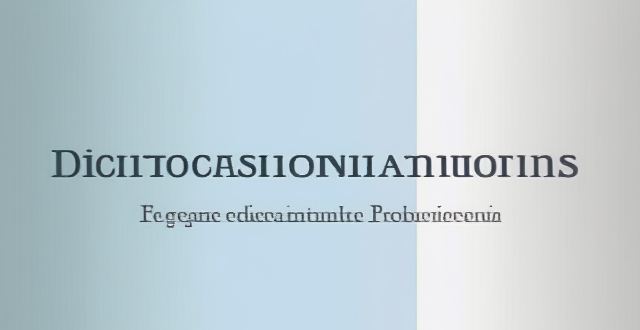
Are there any international laws that protect the rights of women ?
The text discusses international laws and conventions established to protect and promote women's rights, including the Convention on the Elimination of All Forms of Discrimination Against Women (CEDAW), the Inter-American Convention on the Prevention, Punishment and Eradication of Violence Against Women, the Maputo Plan of Action, the European Convention on Human Rights (ECHR), and the Beijing Declaration and Platform for Action. These legal frameworks aim to address issues such as discrimination, violence, gender equality, health care, education, and economic resources. The effectiveness of these laws often depends on national governments' commitment to implementing and enforcing them.

What role do education and literacy play in advancing women's rights ?
Education and literacy are fundamental rights that play a crucial role in advancing women's rights. They empower women, enhance their decision-making abilities, and enable them to participate fully in society. Education and literacy provide women with the knowledge and skills necessary to make informed decisions about their lives. Educated women are more likely to delay marriage and childbearing, have fewer children, and make better health choices for themselves and their families. Education and literacy increase women's economic opportunities by enabling them to access better jobs and higher incomes. Educated women are more likely to be employed in professional or skilled positions, which leads to greater financial independence and bargaining power within households. Educated women are more aware of their health rights and are better equipped to make decisions related to their own health and well-being. They have improved access to healthcare services, understand the importance of preventive care, and are less likely to suffer from diseases associated with poverty and lack of education. Education and literacy enhance women's political engagement by providing them with the necessary knowledge and skills to participate actively in the political process. Educated women are more likely to vote, run for office, and hold leadership positions. Their increased political participation leads to policies that promote gender equality and address issues affecting women and girls. Education and literacy help to break down gender stereotypes and promote social equality between men and women. When women are educated, they are more likely to challenge discriminatory practices and traditions that limit their rights. Educated women are also more likely to advocate for gender equality in their communities, leading to a more equitable society for all.
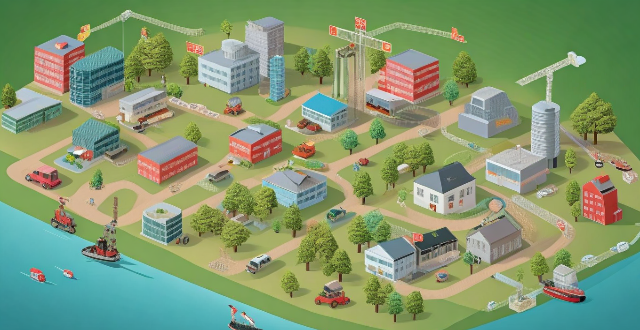
How can we balance economic development with climate action and human rights protection ?
Balancing economic development with climate action and human rights protection requires prioritizing sustainable development, integrating climate action into economic planning, protecting human rights, and collaborating across sectors. Governments and businesses should adopt policies and practices that promote renewable energy sources, reduce greenhouse gas emissions, encourage investment in green technologies, support small-scale farmers, promote fair trade practices, develop national climate plans, invest in research and development of new technologies, provide incentives for eco-friendly behaviors, ensure equal access to education, healthcare, and other basic services, protect the rights of marginalized communities, promote gender equality, enforce laws that protect workers' rights, establish cross-sectoral partnerships, encourage dialogue and consultation between stakeholders, support local initiatives, and encourage international cooperation.
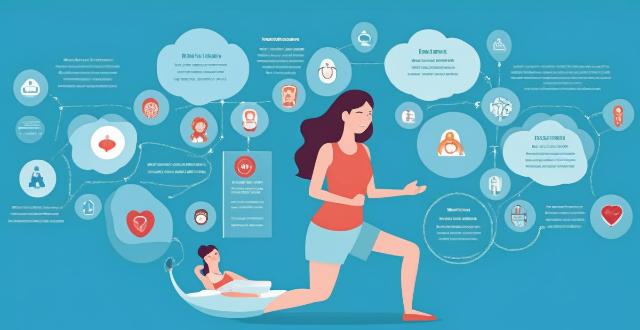
How does climate change affect women's health and reproductive rights ?
Climate change has a significant impact on women's health and reproductive rights, including increased risk of displacement, violence, and sexual assault during extreme weather events; food insecurity and malnutrition affecting reproductive health; water scarcity leading to physical injuries and reproductive health problems; air pollution causing respiratory and heart diseases as well as complications during pregnancy; and mental health issues due to stress and fear of violence. It is crucial to take action to mitigate the effects of climate change and protect the health and well-being of all people, especially those who are most vulnerable.